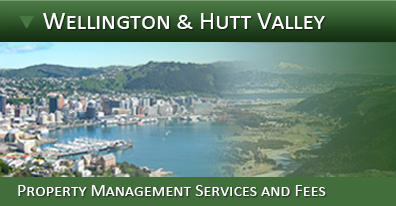Things to Consider When Buying a Rental Property
Investing in property has been popular with Kiwis over the years but buying a rental is a business decision so don’t fall into the trap of using the same criteria you would for your own home.
We’ve put together a list of the key things you should take into account if you are thinking about becoming a landlord.
Budget and Ongoing Costs
Have a good understanding of your budget and not just for the initial purchase but also factor in the ongoing costs. Make sure you budget enough for insurance, rates, body corporate fees, repairs and general maintenance and for two to three weeks in the year when you may be ‘in between’ tenants.
Think about whether you want to be negatively or positively geared. If the rent you could ask for the property won’t cover your repayments it will be negatively geared. This scenario can have tax advantages but may also cause financial stress. Know what debt levels you’re comfortable with.
Price and Potential
Buy well. Try to buy below market value and compare prices across suburbs. Do your research and buy in suburbs you think will appreciate at a greater rate than others. Keep in mind that a rental property only has to be clean and functional. Don’t get sucked into something purely because it has a pretty garden or stylish interior.
Yield is another way of measuring a property’s income potential. It’s a useful starting point for filtering out the better rental properties and avoiding the common mistake of over capitalising.
To work out yield, take the rental you think you could charge for the property over a year and divide it by the purchase price. The yield is represented as a percentage so a house that cost $300,000 and achieves a rental of $375 per week or $19,500 a year, has a yield of 6.5%.
Traditionally, houses have better capital growth and apartments have higher yields.
Location
Location, location, location. It is usually one of the biggest driving factors influencing the price of a property and the returns you might expect from it so buy with your head not your heart.
Don’t just look at areas that you would like to live in or you will risk excluding some possibly great potential properties. Instead, do your research on which areas or suburbs have a strong demand for rental accommodation and those that have more potential for growth depending on whether you’re buying for yield or capital growth.
If you’re focused on future growth, look for areas due for redevelopment, transport infrastructure improvements or increases in demand due to changing lifestyles and demographics. If you’re looking firstly for good yield, search in areas with good existing local amenities.
Good Local Amenities
Proximity to good services and facilities for your tenant will affect the rent you can ask for and how easily you find good tenants. Buying a property close to public transport, schools, parks or good cafés or shops will always make it more attractive to future tenants.
Target Tenant
Look for an area with few rental vacancies and look for features in the property that will appeal to tenants. Does the apartment come with a balcony? Is there plenty of off-street parking or a double garage?
You may want to decide on the specific sort of tenants you would like to attract and buy the property accordingly. Are you looking for young professional families? In which case you should search for homes with gardens, close to good schools and parks. University students and young professional singles will also be attracted to different types of rentals in different locations.
Property Management
Once you’ve bought your investment property you must decide whether to choose professionals to manage your investment for you or manage it yourself.
Using a property management company such as Rental Managers Wellington will simplify the main stresses associated with owning a rental – finding good tenants and collecting the rent on time.
If you own a property and are suspicious of meth contamination, consider have it tested by Drug Testing Agency.


